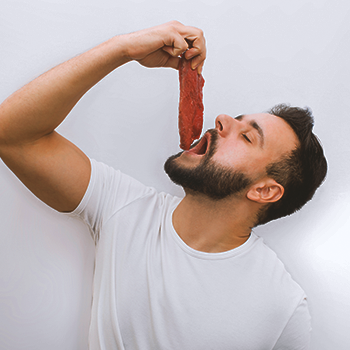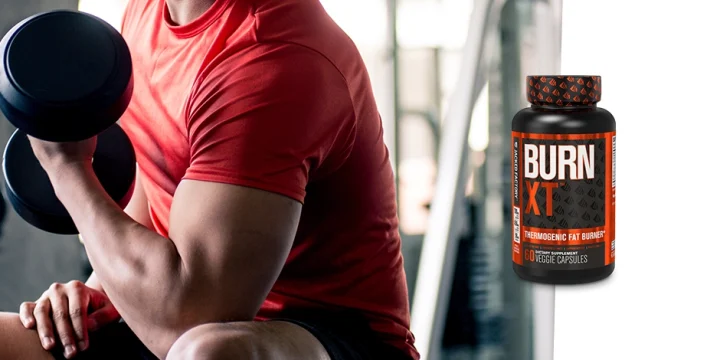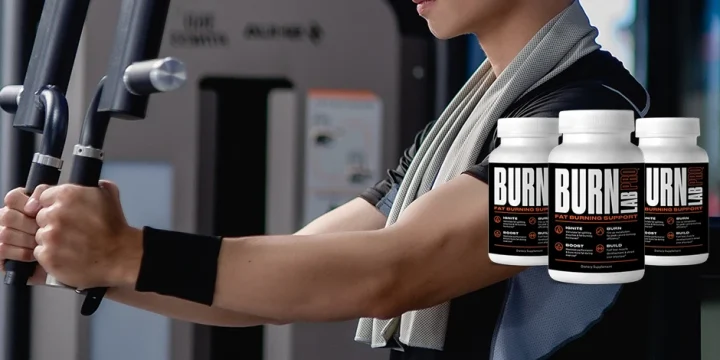Throughout my career as a fitness trainer, I consistently recommended that my clients incorporate a high-protein diet to establish a strong nutritional foundation.
The increased protein intake seemed to support them in attaining diverse fitness goals. Interestingly, a significant number of clients was surprised by how effective it was in promoting fat loss., prompting me to delve deeper into the subject.
This article aims to uncover whether protein consumption contributes to fat loss and to highlight the benefits of consuming a high-protein diet.
Quick Summary
- Consuming foods with high amounts of proteins can help you burn fat, lose weight, and retain lean body mass.
- Some ways protein helps burn fat include increased satiety, regulating hunger hormones, and preventing muscle loss.
- A slight increase in protein intake, from 15 to 18 percent of calories, reduced the likelihood of regaining lost weight by 50 percent.
- As a fitness trainer, incorporating a healthy diet high in proteins, whole grains, and healthy fats and supplementing workouts with high-quality supplements can help expedite fitness objectives.
Does Eating Protein Burn Fat?

Yes, eating protein can help burn fat.
According to a study published by the National Institute of Health, protein requires more energy to digest, increasing the body's thermogenesis and enhancing the body's ability to burn fat [1].
Furthermore, protein is known to promote satiety, which allows you to feel full for longer throughout the day, thereby decreasing your calorie intake.
In my experience, eating more protein has helped me lose weight and maintain lean muscle mass better than consuming fats and carbohydrates, especially when working out.
How Protein Helps You Lose Weight

Consuming more protein in your diet can help with weight loss in various ways. Let's delve into the key aspects:
Increases Satiety
A study from the National Institute of Health has shown that high protein diets curb hunger, reducing the likelihood of excessive calorie consumption [2].
Recommending such diets to clients struggling with appetite control has shown positive outcomes, with increased feelings of fullness and decreased post-meal appetite.
Even a slight protein boost can significantly impact appetite, as demonstrated in a study published by the National Institute of Health, where a shift from 15% to 30% protein intake resulted in a 441-calorie decrease [3].
Another study from the same health institute comparing high and low protein intake during a caloric deficit revealed less muscle loss in the high-protein group [4].
Regulates Hunger Hormones

Your brain's hypothalamus actively regulates your weight by responding to signals that control hunger and eating through specific hormones, according to the National Institute of Health [5].
Protein plays a key role in regulating satiety, enhancing the function of weight regulation hormones. According to the same health institute, high protein intake decreases hunger hormones like ghrelin and increases appetite-reducing hormones like peptide YY [6] [7].
Substituting proteins for carbs and fats minimizes hunger hormone activity and amplifies satiety hormones, contributing to a reduction in calorie intake and supporting long-term weight loss.
Related: What Are Natural Sugar Blockers?
Prevents Muscle Loss and Metabolic Slowdown
Losing weight doesn't always mean losing muscle, a concern when insufficient protein is consumed during exercise, as per the National Institute of Health [8].
Furthermore, the same health institute indicates that while inadequate protein can lead to "starvation mode," sufficient protein intake aids muscle preservation, maintaining a high metabolic rate during fat burning [9] [10].
Moreover, according to the same health institute, combining high-protein diets with strength training prevents muscle loss and accelerates muscle growth, enhancing metabolic activity and promoting faster weight loss [11] [12].
Over the years, I’ve had clients who incorporated weight training alongside their dieting tend to achieve faster weight loss and muscle gain compared to those who solely focused on dieting.
Helps Maintain Weight Loss

If you’ve lost weight and are trying to maintain your weight loss, a higher protein intake can help prevent weight regain.
One study from the National Institute of Health has shown that even a modest protein increase (from 15% to 18% of calories) reduced weight regain after weight loss by 50% [13].
Many of our clients who had achieved their weight loss goals benefited from their protein diet by maintaining their new weight and building lean muscle mass.
Related Article: Does Your Body Burn Fat or Muscle First?
Increases Thermic Effect of Food
Research from the National Institute of Health suggests that protein's role in weight management extends to its impact on the thermic effect of food (TEF).
Protein has a significantly higher TEF (20–30%) compared to carbs (5–10%) and fats (0–3%), providing a metabolic advantage by burning more calories [14].
Incorporating muscle-building foods into your diet, particularly with limited exercise options, becomes a strategic approach to enhancing calorie burning and improving body weight management.
Benefits of a High-Protein Diet
Apart from aiding weight loss and muscle growth, high protein intake offers additional benefits:
- Promotes bone strength: Constituting 50% of bone volume and 33% of bone mass, protein, when combined with calcium and vitamin D, supports bone health, potentially preventing osteoporosis, according to research findings [15] [16].
- Lowers blood pressure: A study from the National Institute of Health suggests that increased protein intake, particularly from plant sources, is linked to potential reductions in blood pressure and a decreased risk of cardiovascular diseases [17].
- Aids in injury repair: Research from Springer Sports Medicine indicates that a protein-rich diet is essential for soft tissue building and inflammation control, assisting in minimizing muscle loss and facilitating the recovery of damaged muscles [18].
How Can You Increase Your Protein Intake?

Increase your protein intake through a high-protein diet, and consider these popular options for weight loss and muscle building:
- Keto Diet: Relies primarily on proteins and fats, promoting weight loss through ketosis by depleting carbohydrate reserves.
- South Beach Diet: Emphasizes a healthier approach with a variety of food groups, including beans, legumes, whole grains, low-fat dairy, vegetables, and healthy fats.
- Atkins Diet: Known for its simplicity and effectiveness, this diet involves high-fat consumption (68%), allowing all fats and proteins while restricting carbs.
- Stillman Diet: Adopts a high-protein approach (64%), encouraging lean meats, eggs, and low-fat cheese, while restricting carbs and fats.
- Zone Diet: Follows a specific ratio (40% carbs, 30% protein, 30% fat) with a focus on low-GI carbs, lean proteins, and monounsaturated fats.
- Sugar Busters Diet: Aims to maintain stable blood sugar through low-GI foods, featuring high-fiber options like fruits, vegetables, proteins, and whole grains while excluding high-GI foods.
“For most healthy people, a high-protein diet generally isn’t harmful, particularly when followed for a short time. Such diets may help with weight loss by making you feel fuller.”
- Dr. D. Divakar, MBBS, MD, Nephrologist
List of High-Protein Foods for Weight Loss

Here's a list of high-protein foods I've recommended to clients over the years to assist with weight loss and muscle gain:
Animal Sources:
- Lean meats such as beef, lamb, pork, veal, and buffalo
- Poultry like turkey, chicken, duck, goose, and eggs
- Seafood including fish, prawns, shrimp, crab, lobster, oysters, and mussels
Dairy Sources:
- Milk
- Greek yogurt
- Cottage cheese
- Whey protein
These sources can be consumed as snacks or quick protein options after a workout:
- Peanuts, almonds, pistachios, cashews, walnuts, and hazelnuts
- Pumpkin seeds, hemp seeds, sunflower seeds, flax seeds, and sesame seeds
- Protein shakes made from whey protein powder, vegan protein powder, or soy protein powder (Note: Avoid relying on these as meal replacements, but they can help you reach protein goals, especially if you haven't consumed enough in earlier meals).
“Fish is one of the most common foods that one has to consume when you are on a high protein diet. It is full of omega-3 fatty acids that help to lower cholesterol.”
- Dr. Priyanka Joshi, PhD, Dietician
FAQs
Which Protein Is Best for Fat Loss?
Whey protein is the best protein for fat loss. It is rapidly absorbed, facilitating increased muscle-protein synthesis post-exercise, making it an ideal supplement for those aiming to lose fat.
Can Protein Burn Body Fat Without Exercise?
Yes, protein can help burn body fat without exercise. However, if you want to lose weight quickly and efficiently, you should add cardio and weight training to your fitness regimen.
How Much Protein Should I Eat Every Day to Burn Body Fat?
You should eat about 0.6–0.75 grams of protein per pound of body weight (1.2–1.6 grams of protein per kg) every day to burn body fat. Protein should comprise 20–30% of your daily caloric intake.
Will Eating Too Much Protein Make Me Fat?
Yes, eating too much protein can make you fat because overeating any macronutrient means more calories. As with other diets, a high-protein diet should be consumed in moderation to maintain a healthy weight.
References:
- https://www.ncbi.nlm.nih.gov/pmc/articles/PMC7539343/
- https://www.ncbi.nlm.nih.gov/pmc/articles/PMC5490566/
- https://www.ncbi.nlm.nih.gov/pubmed/16002798
- https://pubmed.ncbi.nlm.nih.gov/19927027/
- https://www.ncbi.nlm.nih.gov/pmc/articles/PMC3319208/
- https://pubmed.ncbi.nlm.nih.gov/16469977/
- https://pubmed.ncbi.nlm.nih.gov/16950139/
- https://www.ncbi.nlm.nih.gov/pmc/articles/PMC3665330/
- https://www.ncbi.nlm.nih.gov/pmc/articles/PMC3387402/
- https://pubmed.ncbi.nlm.nih.gov/19927027/
- https://pubmed.ncbi.nlm.nih.gov/18356845/
- https://www.ncbi.nlm.nih.gov/pmc/articles/PMC3661116/
- https://www.ncbi.nlm.nih.gov/pubmed/14710168
- https://www.ncbi.nlm.nih.gov/pmc/articles/PMC524030/
- https://journals.lww.com/nutritiontodayonline/fulltext/2019/05000/optimizing_dietary_protein_for_lifelong_bone.5.aspx
- https://pubmed.ncbi.nlm.nih.gov/22139564/
- https://pubmed.ncbi.nlm.nih.gov/12544662/
- https://www.ncbi.nlm.nih.gov/pmc/articles/PMC4672013/
About The Author
You May Also Like






